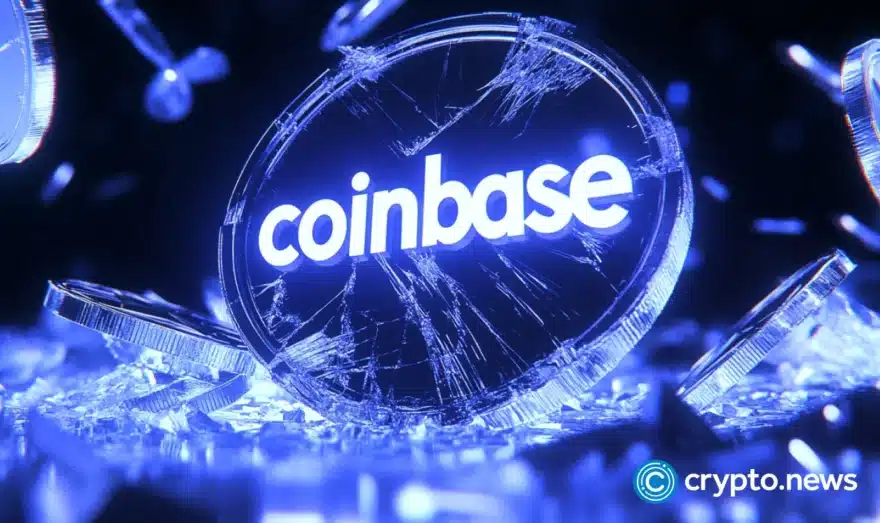A quiet SaaS stock just surged 840% on Solana plans — is Janover writing a new playbook?

How did Janover go from real estate loans to a Solana validator network — and what explains its 840% stock jump in less than 24 hours?
Table of Contents
A tiny SaaS firm goes full crypto
Janover (JNVR), a relatively unknown software company that connects commercial real estate borrowers with lenders, has made an unexpected move into the crypto world.
On Apr. 7, the company announced that a group of former Kraken executives had acquired a controlling stake and raised $42 million in funding.
Alongside this, Janover revealed a new digital asset strategy focused on Solana (SOL), including plans to rebrand as DeFi Development Corporation.
While Janover will continue running its software operations, the company now intends to hold Solana’s SOL token as its core treasury asset.
Before the announcement, JNVR traded at $4.44, with limited trading activity. However, following the news, the stock opened at $10 in pre-market trading, surged to an intraday high of $48.47, marking a brief 1,000% jump, and ultimately closed at $40.25, reflecting an 842% gain on the day.
Trading volume also spiked from a few thousand shares to over 25 million, largely driven by retail interest after the crypto pivot.
Let’s take a closer look at what the company is doing and why the market responded the way it did.
A new owner, a new direction
Founded in 2018 by Blake Janover, Janover Inc. initially focused on financial technology in the commercial real estate space. Its core product was a software platform designed to connect real estate borrowers, such as those developing apartment complexes or shopping centers, with banks, credit unions, and other lenders.
The platform used AI tools to simplify loan discovery, aiming to streamline the borrowing process in a market that remains highly fragmented.
Janover operated as a software-as-a-service business, generating revenue through digital infrastructure that supported lending workflows.
The company went public on NASDAQ in July 2023 under the ticker JNVR, raising $5.6 million at $4 per share. Despite listing, Janover remained a small player in public markets, with low daily trading volume and a market capitalization below $5 million.
On Apr. 7, Janover announced a full strategic reorientation. The acquisition involved the purchase of 728,632 shares of common stock and all 10,000 shares of Series A preferred stock, granting the new group led by former Kraken executives controlling interest in the company.
To fund the shift, Janover raised $42 million through a mix of convertible notes and warrants. Crypto investors, including Pantera Capital, Kraken, Arrington Capital, and others, backed the raise.
The financial structure of the deal includes a few key components:
- Convertible notes: These carry a 2.5% annual interest rate and mature in April 2030. If Janover’s market cap hits $100 million, the notes can be converted into shares at $4.81 each.
- Warrants: These give investors the right to purchase additional shares in the future, priced at $120 or $150 per $1,000 invested, depending on the terms.
A crypto-focused overhaul
Janover’s new direction centers on holding Solana’s SOL token as its primary treasury asset, a strategy inspired by Strategy’s approach to Bitcoin (BTC), which it holds on its balance sheet.
But unlike Bitcoin, Solana operates on a proof-of-stake network, allowing holders to earn yield by running validator nodes.
Janover now plans to operate these validators directly. Validators are servers that confirm transactions and help maintain the security of the Solana blockchain. In return, they earn rewards, typically between 5% and 7% annually.
Running its own validators, instead of relying on third-party platforms, allows Janover to generate yield while also building stronger technical and operational alignment with the Solana network.
In parallel, the company has expressed interest in developing a deeper connection with the Solana ecosystem. While details remain limited, this could involve building software tools tailored to blockchain-based projects or integrating real estate finance with decentralized infrastructure.
For now, however, the focus is on asset acquisition and validator participation.
The transition is being led by a new executive team with strong crypto-native experience:
- Joseph Onorati, formerly Chief Strategy Officer at Kraken, has been named Chairman and CEO. He’s responsible for steering Janover’s shift to a digital asset treasury model. In remarks to CNBC, Onorati said the company would begin acquiring SOL and operating validators immediately.
- Parker White, now serving as CIO and COO, was previously Engineering Director at Kraken. He brings hands-on experience from managing a Solana validator with $75 million in delegated stake, along with overseeing a $2 billion bond portfolio in earlier roles. His combined background in blockchain operations and traditional finance will be key in managing both token holdings and staking infrastructure.
- Marco Santori, Kraken’s former Chief Legal Officer, has joined the board. Known for his work on crypto regulatory frameworks, Santori is expected to guide Janover’s compliance efforts as it enters the digital asset space.
Importantly, Janover’s original leadership team remains in place. Founder Blake Janover and CFO Bruce Rosenbloom continue to oversee the company’s legacy real estate SaaS business, while William Caragol remains chair of the audit committee.
The new treasury paradigm
Janover’s shift toward a crypto-backed treasury model may seem unconventional, but it’s part of a growing trend. In recent years, several public companies have sought to replicate Strategy’s strategy of holding digital assets, initially Bitcoin, as core reserve assets.
Strategy itself holds over 500,000 BTC on its balance sheet. Its pivot was one of the earliest attempts to transform a public company into a direct proxy for exposure to a crypto asset.
More recently, GameStop, one of the U.S.-listed companies, have also adopted a crypto-focused capital strategy, although its approach has been more experimental and retail-driven.
Outside the U.S., Tokyo-listed Metaplanet has taken a similar route, positioning itself as a digital asset-aligned public company.
Janover’s move stands out as it appears to be the first U.S. company to adopt this kind of treasury model using Solana as the core asset, rather than Bitcoin.
In Canada, Sol Strategies is pursuing a similar vision, with its reserve holdings primarily allocated in SOL, instead of traditional cash or equity instruments.
While smaller in scale than Strategy’s holdings, these companies are helping to create a blueprint for aligning treasury management with blockchain ecosystems they believe in.
Amid this shift, SOL’s price has shown clear signs of volatility in the past 24 hours, though it’s followed an upward trajectory overall.
Starting from a low of $96.50, SOL steadily climbed throughout the day, reaching a high of $112.30 before settling around $111 at the time of writing, marking a gain of approximately 11% over the 24-hour period.
Much of this price movement seems to be influenced by broader market factors, particularly news related to trade tariffs, which have added short-term uncertainty across asset classes.














